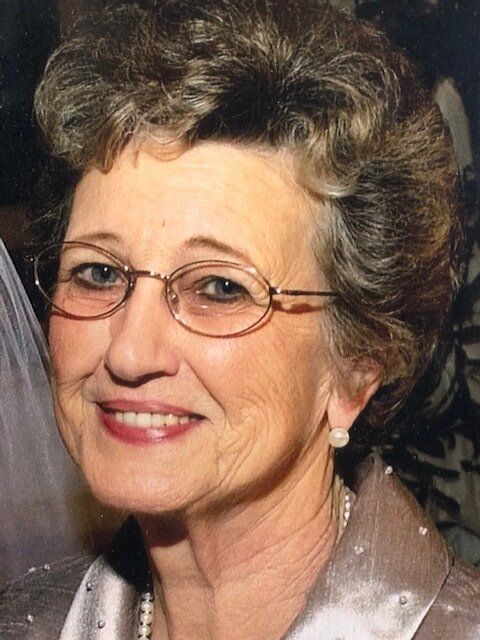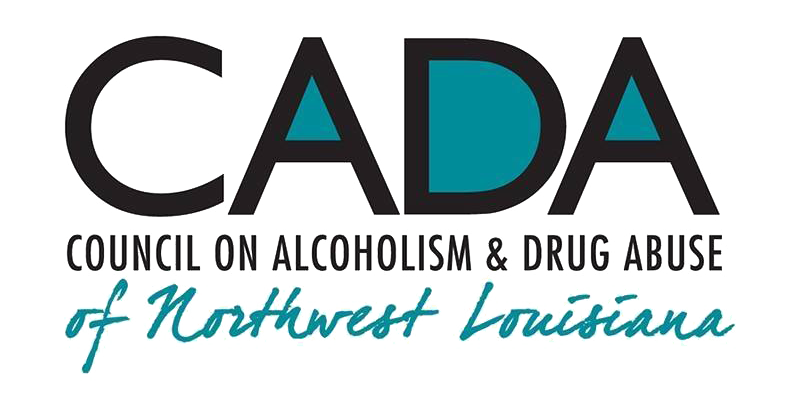Add your title here
This is the text area for this paragraph. To change it, simply click and start typing. Once you've added your content, you can customize its design by using different colors, fonts, font sizes and bullets. Just highlight the words you want to design and choose from the various options in the text editing bar.
This is the text area for this paragraph. To change it, simply click and start typing. After adding your content, you can customize it.
The Tootsie Davis
Family Education and Support Program
The most important thing you can do if you have a loved one with a substance use disorder is learn everything you can about addiction... and how it impacts the entire family.
Meetings each Wednesday at 12 noon.
THE TOOTSIE DAVIS FAMILY EDUCATION PROGRAM 2024 SYLLABUS
January
What Is Addiction?
February
How Are Substance Use Disorders (SUDs) Detected?
March
How Does Addiction Impact the Entire Family?
April
How do SUDs Affect Family Interpersonal Interactions?
May
What Are the the “3 Cs” of Family and Personal Codependency Recovery?
June
How Do Individual Family Members Adopt Re-Enactive “Roles” in the Overall Family System?
July
What Is Loving Confrontation?
August
What Is the Place of 12 Step Programs in Recovery?
September
What Are Some Non-12-Step Modes of Recovery?
October
What Is the Role of Family Education in Recovery?
November
What Is the Place for Medication-Assisted Therapy (MAT) in Recovery for Those with SUDs?
December
How Do We Establish and Maintain Healthy Interpersonal Boundaries with Family Members and Others?
CLICK HERE TO DOWNLOAD THE FAMILY SUPPORT AND EDUCATION PROGRAM RESOURCE MANUAL
CLICK HERE TO DOWNLOAD ADVERSE CHILDHOOD EXPERIENCES AND TRAUMA: CHANGING HISTORY
Even if your loved one is not ready for treatment, you can begin your healing today.
CADA is here for the whole family. Dealing with a loved one who is struggling with addiction is challenging for every member of the family from parents to children, from siblings to spouses. Every member of the family needs support, education on addictions, and a chance to learn ways to break the chains of addiction.
At CADA, each member of the family can begin healing by participating in the Edna “Tootsie” Davis Family Support Group Program. Join us for a monthly meal, fellowship, and education on various issues that accompany addiction recovery.
DBT: Dialectical Behavior Therapy
You may feel helpless when dealing with the stress of a loved one who is addicted to drugs or alcohol, but did you know there are actually things you can do to reduce the stress and actually re-direct your thoughts and actions? There's a clinically-validated treatment process called dialectical behavior therapy (DBT). DBT presents four "Core Skills," and they're designed to help patients and their families with all manner of problems, including the complexities of living with someone affected by addiction.
Take a look at these brief videos that can help you get started on using these skills to empower yourself over stress:
DBT Skills: Mindfulness (13'15"):
https://www.youtube.com/watch?v=sttzagHUPXY
DBT Skills: Distress Tolerance (13'19"):
https://www.youtube.com/watch?v=YeAMHacC8P8
DBT Skills: Emotion Regulation (9'8"):
https://www.youtube.com/watch?v=5ObNMMT0woo&t=138s
DBT Skills: Interpersonal Effectiveness (13'7")
https://www.youtube.com/watch?v=TQ33fPD7ntA&t=30s
REGISTER TO RECEIVE MEETING REMINDERS!
We will get back to you as soon as possible.
Please try again later.
THE STORY OF EDNA IRENE “TOOTSIE”
RHODES DAVIS 1933 - 2017

Tootsie Davis, the generous founder of CADA’s Tootsie Davis Family Education & Support Program was born in 1933, during the Great Depression into a poor, rural Arkansas family. Tootsie had many gifts and spent her life sharing those gifts with others. In fact, the Tootsie Davis Program exists today only because Tootsie had the heart and the foresight to arrange a planned estate gift to CADA in order to help family members of those struggling with addiction. She had a heart of compassion, resilience, loyalty, and abounding love.
Tootsie married Louie R. Davis in 1951, and by 1954, they had two children—Louie Randolph "Randy" Davis, Jr. and Dianne Davis Hanes. Tootsie found her calling when she became a mother. Nursing Randy through polio proved she was part nurse, as well. Tootsie was gifted with a love for babies and children, and she demonstrated that gif as she nurtured her own children, grandchildren, and great-grandchildren – and an untold number of babies that she rocked in the nursery at Ford Park Baptist Church where Louie and Tootsie were Charter Members.
Tootsie’s granddaughters adored her. She impacted their lives immeasurably. Her voice of reason and acceptance, her shoulder to cry on, her wisdom and admonishment, her playfulness and laughter—these all were qualities that made her a safe haven for her family.
Tootsie was a homemaker for many years. Her cooking skills were unsurpassed, and her chocolate pie would have won a blue ribbon in any bake-off! She often delivered those pies to offices, friends, and even the fire department. Her skills as a seamstress kept her and her daughter Dianne dressed in the latest fashions. Her skills in the arts produced leatherwork, furniture, ceramics, crochet, needlepoint, and of course, her beautiful quilts that she freely gifted to those who needed them. If you received one of Tootsie's quilts, you were blessed.
Although life was at times painful for Tootsie, she found great solace and support from her AL ANON groups and friends. She gained and shared peace and serenity as she worked the program and surrendered her life and her will to God. Tootsie’s mind and life were eventually stolen by Alzheimer's, and perhaps the saddest irony of all is that she might not have realized her value and impact on the world around her.
Tootsie found her peace and purpose by paying forward and sharing her gifts with the world around her. Her gift of the Tootsie Davis Family Education and Support Program to our community will continue to enrich the lives of families for years to come.
Tootsie, we are eternally grateful for your life and your legacy.
TO SUPPORT THE TOOTSIE DAVIS PROGRAM, CLICK HERE.
RESOURCES
VIDEOS:
Ferguson, Craig: 2007 Sobriety Monologue
Fowler, Sam: Wasted: Exposing the Family Effect of Addiction
Hollingsworth, Amber: Advice for Families of Addicts
Hollingsworth, Amber: Stages of Family Recovery: The Good, the Bad, and the Ugly
Martin, Joseph: Recovery and Forgiveness
Mass General: Innovations in Addiction Treatment and Harm Reduction
Massy Learning Institute: Addiction and Family Recovery
Mate, Gabor: How Childhood Trauma Leads to Addiction
Taughinbaugh, Cathy: How CRAFT, ITC, and SMART Recovery Help Loved Ones Change
READING RECOMMENDATIONS
Codependent No More and the Codependent No More Workbook, and The Language of Letting Go by Melody Beattie
How Al-Anon Works – for Families and Friends of Alcoholics
From Survival to Recovery –Growing up in an Alcoholic Home
Courage to Change – a Daily Reader
Hope for Today – another Daily Reader – focuses on children of alcoholics, but good for anyone
Getting Your Children Sober by Toby Rice Drews
Beautiful Boy : A Father's Journey Through His Son's Addiction by David Sheff
AA World Services, Inc.: Twelve Steps and Twelve Traditions, Reformatted Edition. New York: Alcoholics Anonymous World Services, Inc., 2021
Al-Anon Family Groups: How Al-Anon Works for Families and Friends of Alcoholics. Virginia Beach, VA: Al-Anon Family Group Headquarters, 2008
Arterburn, Stephen and David Stoop: Life Recovery Bible. Carol Stream, IL: Tyndale House, 2017
Beattie, Melody: Codependent No More Workbook. Center City, MN: Hazelden Publishing, 2011
Beattie, Melody: The Language of Letting Go. Daily Meditations for Codependents. Center City, MN: Hazelden Publishing, 1990
Conyers, Beverly: Addict in the Family: Stories of Loss, Hope, and Recovery. Center City, Minnesota: Hazelden Publishing, 2021
deBecker, Gavin: The Gift of Fear. New York: Dell Publishing, 1998
Lawford, Christopher Kennedy: What Addicts Know. Dallas: BenBella Books, 2014
Linehan, Marsha: DBT Skills Training Manual, 2nd Edition. New York: Guilford Press, 2015
Martin, Sharon: The Better Boundaries Workbook. Oakland, CA: New Harbinger Publications, 2021
Mohammad, Akikur: The Anatomy of Addiction. New York: Perigree, 2016
Rubin, Charles: Don’t Let Your Kids Kill You: A Guide for Parents of Alcohol and Drug Addicted
Children. Petaluma, California: New Century Publishers, 1996.
Sheff, David: Beautiful Boy: A Father’s Journey Through His Son’s Addiction. New York:
Houghton Mifflin Harcourt Publishing Company, 2018
Smith, Manuel: When I Say No, I Feel Guilty. New York: Bantam Books, 1975
van der Kolk, Bessell: The Body Keeps the Score: Brain, Mind, and Body in the Healing of
Trauma. New York: Penguin Books, 2014
Woititz, Janet: Adult Children of Alcoholics, Expanded Edition. Deerfield Beach, FL: Health Communications, Inc., 1983
Websites
From Al-Anon Family Group Headquarters in New York, the original 12-Step program for loved ones of people with addictive disorders.
https://www.cadanwla.org/famsupport
Information on CADA’s own treatment facilities, which offer family support and education.
https://drugfree.org/parenting-toward-recovery/
A comprehensive website from the Partnership to End Addiction
https://www.hazeldenbettyford.org/family-loved-ones/dealing-with-addiction
Recovery-oriented material from one of the pioneers of professional treatment for addiction and family dysfunction.
https://helpingfamilieshelp.com/about-craft
The CRAFT approach as an alternative to the more-confrontational intervention process.
https://nacoa.org/families/family-recovery/
From the website, an examination of “the process of change by length of sobriety within three domains: the environment, the system and the individuals within.”
https://www.recoveryanswers.org/resource/guide-family-members/
A “Guide for Family Members” from the Recovery Research Institute
https://www.samhsa.gov/find-help/national-helpline
From the Substance Abuse and Mental health Services Administration, a wide-ranging Q and A on addiction and family recovery.
A website devoted to identification of bullying and successful strategies for meeting the challenges of self- and other-protection from bullying in many forms.
An entertaining and insightful podcast covering the gamut of recovery: addiction, family recovery, support groups, co-occurring disorders, etc.
